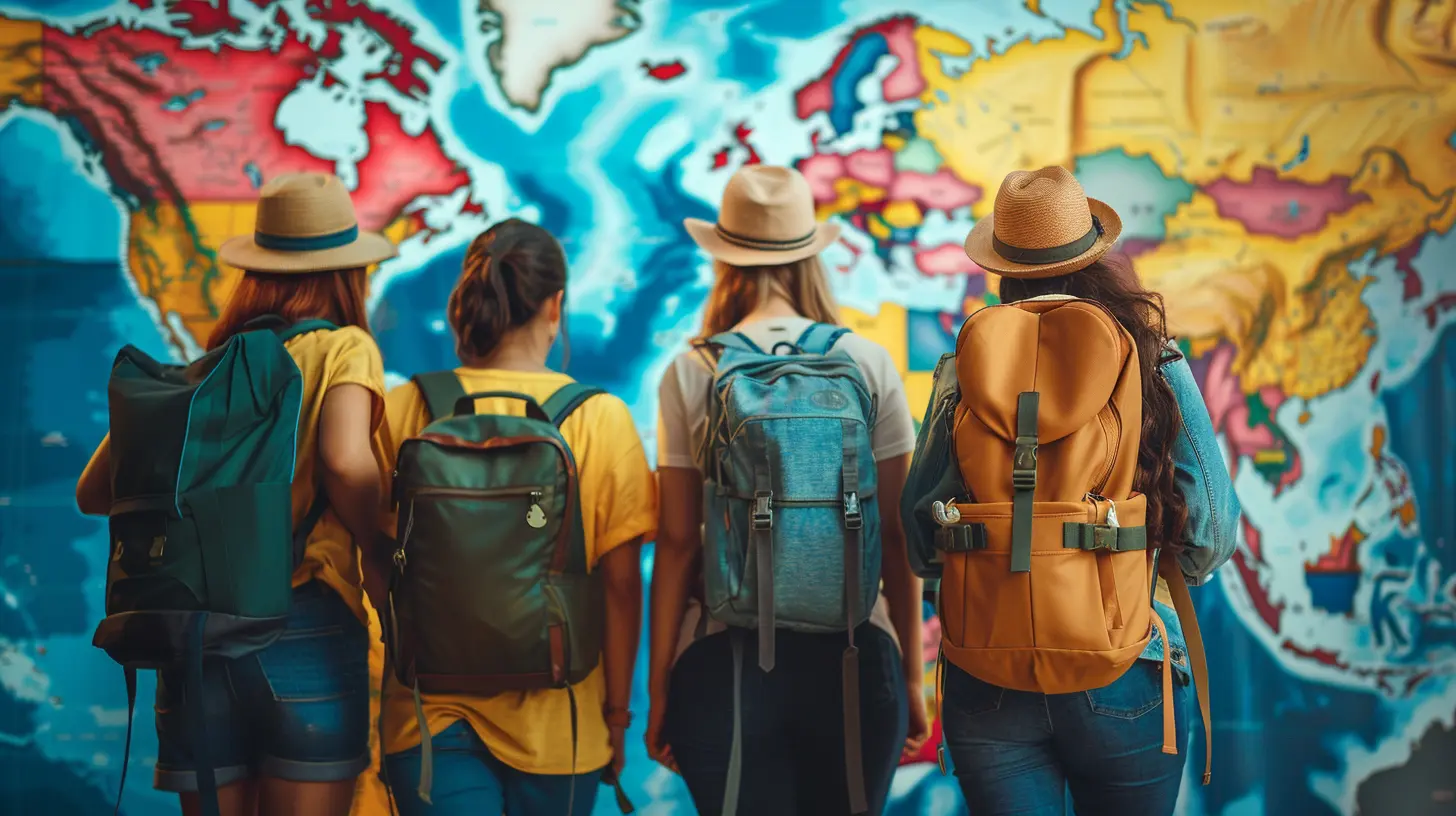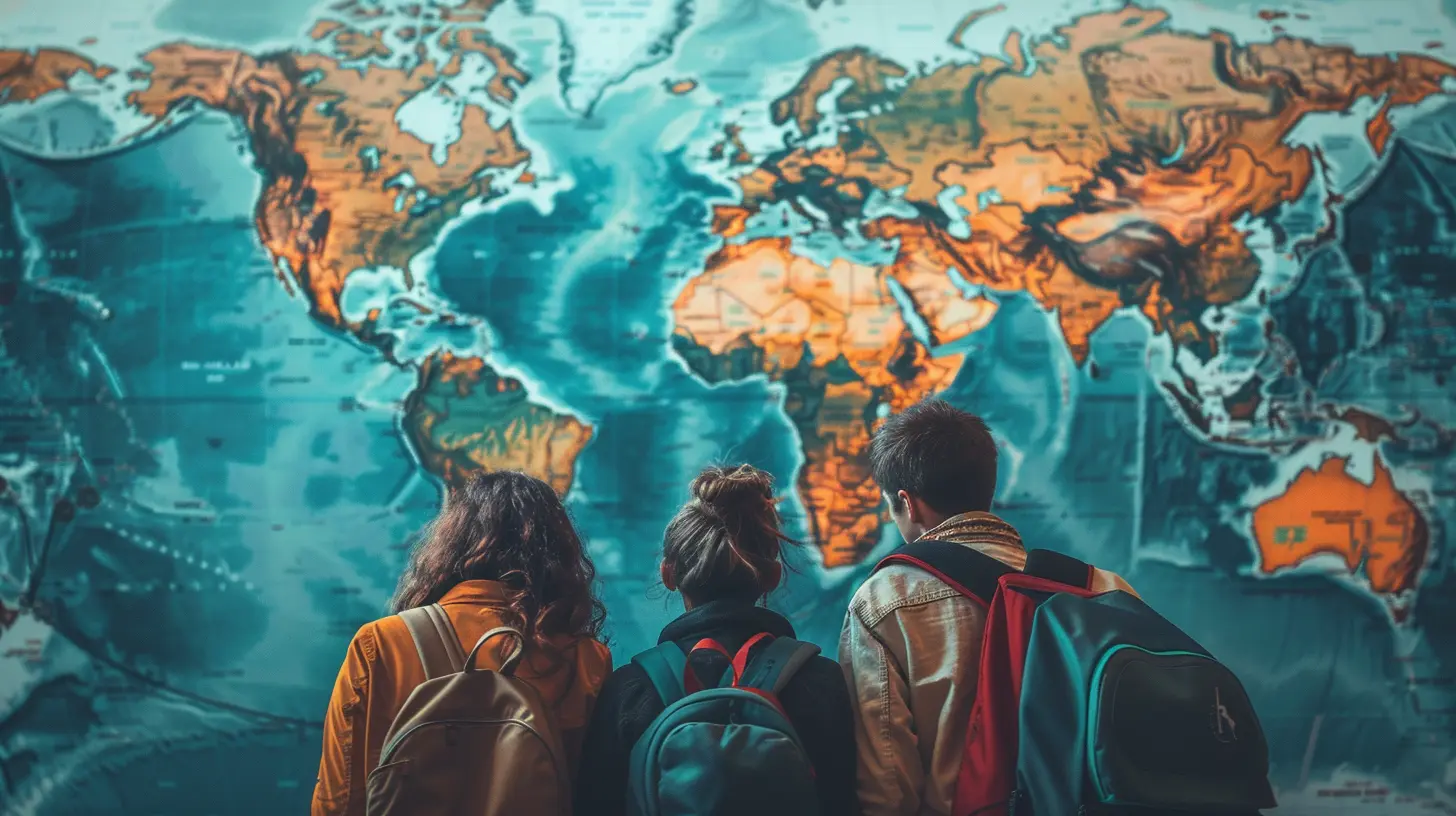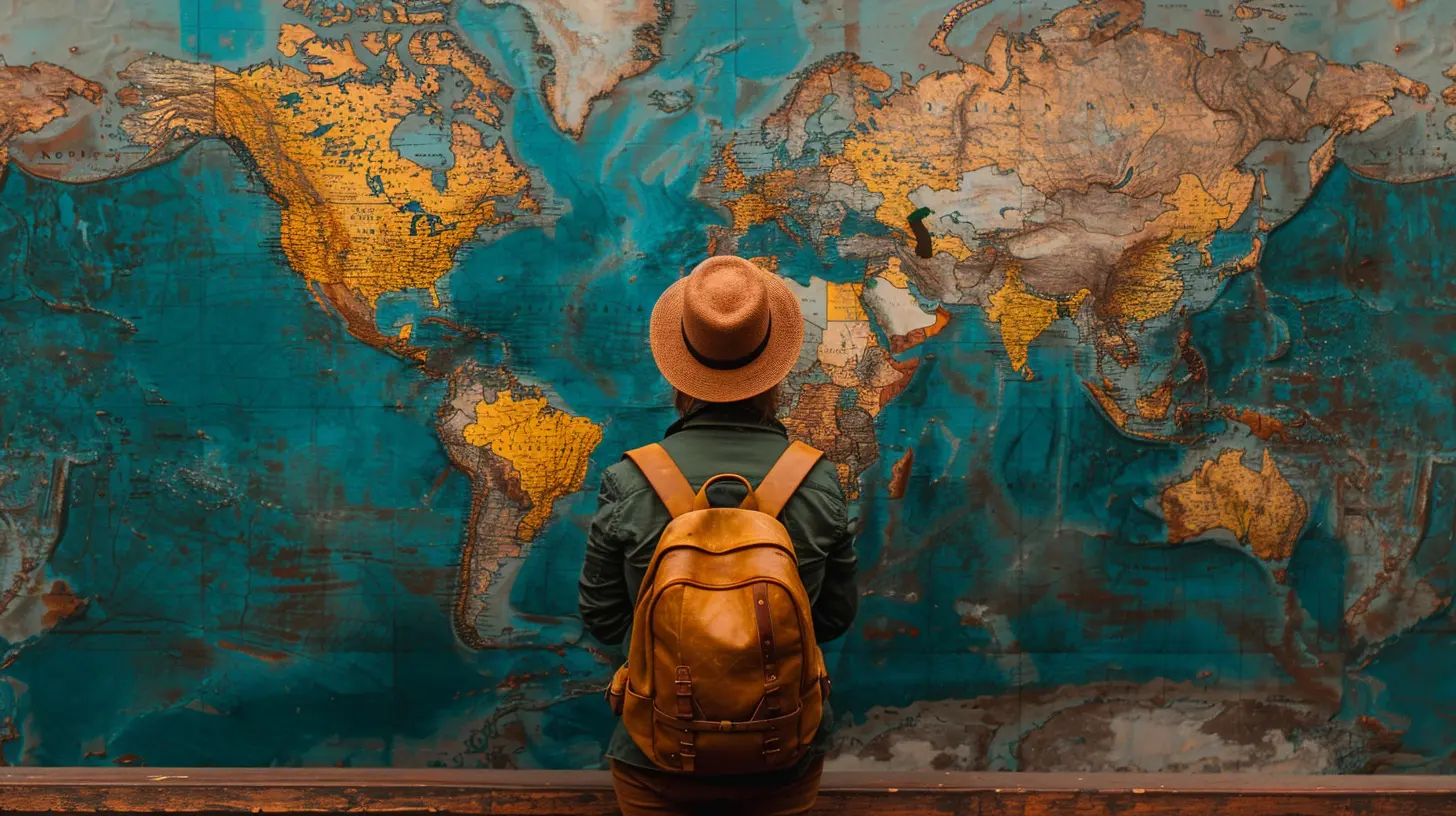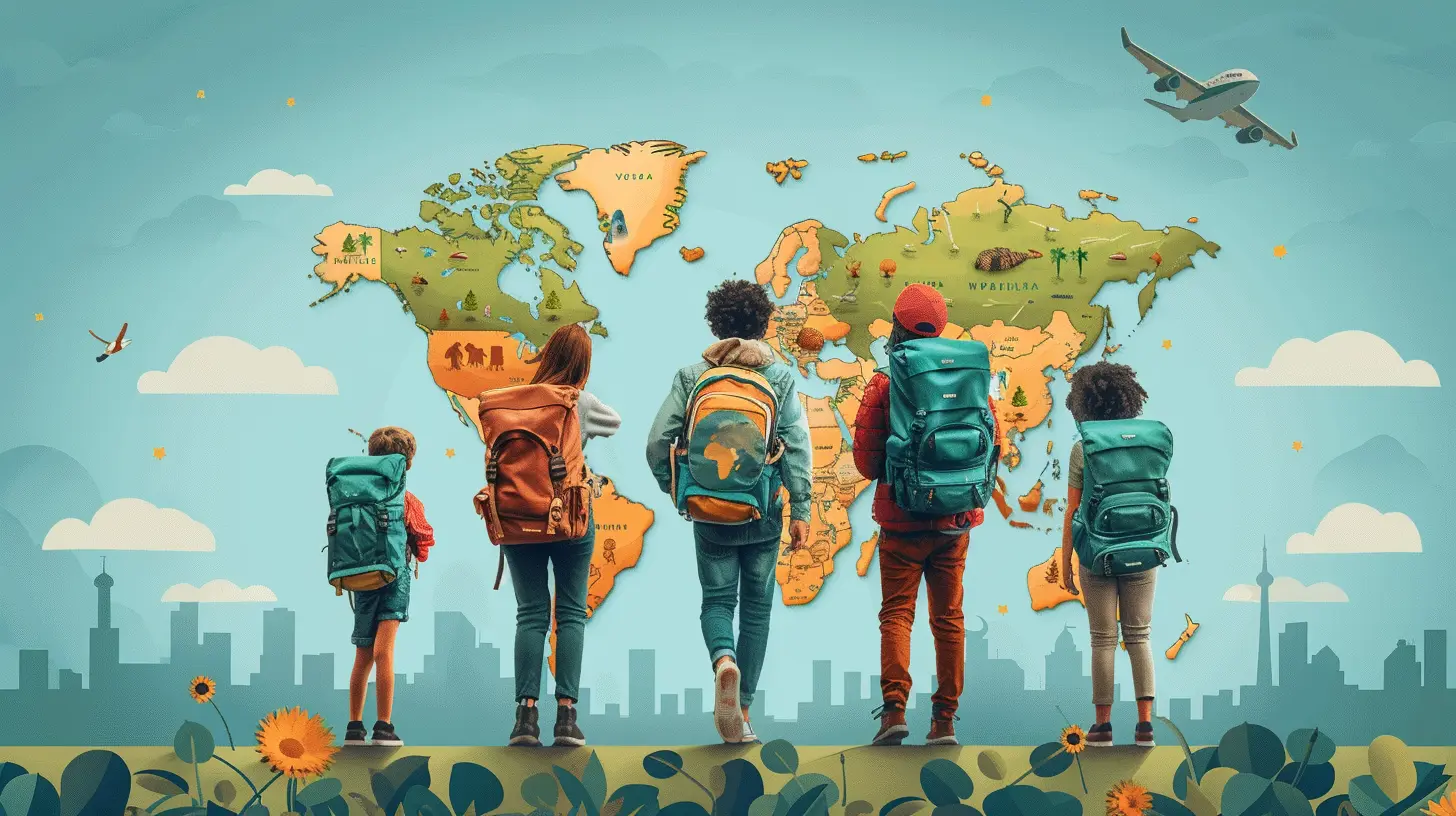Safety Practices for Travelers in Developing Countries
20 September 2025
Traveling to developing countries can be an eye-opening and unforgettable experience. The vibrant cultures, beautiful landscapes, and rich histories make for an incredible adventure. But let’s be real—travel also comes with its fair share of risks. And when you’re venturing into places where infrastructure and security may not be as robust as back home, taking extra precautions is a must.
The good news? Staying safe doesn't mean missing out on the fun. With some common sense, preparation, and these safety tips, you can make your journey smooth and worry-free. So grab your backpack, fasten your seatbelt, and let’s dive into the essential safety practices for travelers in developing countries! 
1. Research Before You Go
Would you jump into a lake without checking how deep it is? Probably not. The same logic applies to traveling. Before you set foot in a developing country, do your homework.- Check travel advisories: Government websites (like the U.S. State Department or the UK’s Foreign Office) provide updated safety warnings.
- Understand local customs and laws: What’s acceptable at home might not be okay abroad. Something as simple as holding hands in public can be frowned upon in certain cultures.
- Know common scams: Every country has its fair share of scammers. A quick online search can save you from falling into their traps.
Knowledge is power, and when you’re informed, you’re already one step ahead of trouble. 
2. Get Your Health in Check
Nobody wants to spend their vacation curled up with food poisoning or battling a mysterious fever. So, make sure you prepare for potential health risks before departure.- Vaccinations are your best friend: Some countries require vaccines for diseases like yellow fever, typhoid, or hepatitis. Check what’s necessary ahead of time.
- Pack a first-aid kit: Basic medicines (pain relievers, anti-diarrhea pills, antiseptics) can be a lifesaver. You never know when you might need them.
- Drink smart: Tap water in some regions can be a no-go. Stick to bottled or purified water to avoid nasty stomach bugs.
Your health is your wealth, and a little preparation can keep you in tip-top shape during your travels. 
3. Be Smart About Money
Flashy jewelry, wads of cash, and designer bags? Bad idea. Standing out like a rich tourist can make you a prime target for theft. Instead, take these precautions:- Carry only what you need: Leave extra cash and valuables locked up in your hotel safe.
- Use a money belt or hidden pouch: Keep your cash and cards close to your body. It’s much harder for pickpockets to snatch them.
- Have emergency funds in multiple places: If your wallet gets stolen, having a backup stash in a separate bag or hidden pocket can save the day.
- Be cautious with ATMs: Use machines inside banks or shopping centers rather than those on empty streets.
Money matters, but keeping it safe matters even more. 
4. Stay Connected
Going off the grid sounds exciting—until you find yourself lost in an unfamiliar neighborhood with no way to call for help. Staying connected can keep you safe, so take these steps:- Get a local SIM card: It’s often cheaper than international roaming, and you’ll always have access to maps and emergency contacts.
- Share your itinerary: Let close friends or family know where you’ll be. A simple text can ensure someone always knows your whereabouts.
- Have emergency numbers saved: Know the local police, hospital, and your country’s embassy contacts. Just in case.
Technology is your travel buddy—use it wisely!
5. Choose Transportation Wisely
Hopping into an unregistered taxi at 2 a.m. might sound like an adventure, but it’s not the kind you want. Transport safety is crucial in developing countries.- Use reputable transport services: Stick to official taxis, registered ride-hailing apps, or hotel-arranged transport.
- Avoid overcrowded buses and trains: If it looks unsafe, it probably is. It’s not worth the risk.
- Be extra cautious on motorbikes: If you’re renting one, wear a helmet (always!) and go slow. Medical care may not be top-notch if you crash.
Getting from point A to point B should be safe, not stressful.
6. Blend In (Don’t Look Like a Tourist)
Tourists often stand out like sore thumbs—big cameras, oversized maps, and confused looks. If you don’t want to attract the wrong kind of attention, try blending in.- Dress like a local: Observe how people around you dress and follow suit. In conservative countries, covering up is a sign of respect—and can help you avoid unwanted attention.
- Walk with confidence: Even if you're lost, walk like you know exactly where you’re going. Looking clueless can make you an easy target.
- Be discreet with valuables: Keep your phone and camera out of sight when not in use. Avoid waving expensive gadgets around.
Fitting in can save you from unnecessary trouble. Plus, it makes for a more immersive travel experience!
7. Trust Your Gut
Ever been in a situation where something just didn't feel right? Trust that feeling. Your instincts are powerful, and they often know when something's off.- Avoid shady situations: If an area feels unsafe, leave immediately.
- Say no when needed: If someone makes you uncomfortable, don’t hesitate to walk away.
- Don’t be overly trusting: Kindness is great, but being too trusting with strangers could lead to scams or worse.
When in doubt, go with your gut. It rarely steers you wrong.
8. Be Cautious with Food and Drinks
Trying new foods is one of the best parts of traveling—but food poisoning? Not so much. Here’s how to eat wisely:- Eat where the locals eat: If a place is packed with locals, it’s a good sign the food is fresh and safe.
- Avoid raw food when unsure: Fruits and veggies that haven’t been washed properly can carry bacteria. When in doubt, go for cooked meals.
- Watch your drinks: Never leave your drink unattended. Spiked drinks are a real threat, especially in nightlife settings.
Great food should give you memories, not stomach troubles.
9. Have a Plan for Emergencies
Hope for the best, plan for the worst. Having a solid backup plan can make all the difference in an emergency.- Know the nearest hospitals: If you need medical attention, you don’t want to waste time figuring out where to go.
- Have travel insurance: It might seem like an unnecessary expense, but if something goes wrong (accidents, theft, or medical issues), you’ll be glad you have it.
- Keep copies of important documents: Passport, visa, travel insurance—having digital and printed copies can save you major headaches if anything gets lost.
A little planning can go a long way in stressful situations.
10. Enjoy Your Trip!
At the end of the day, don’t let fear hold you back. Yes, safety is important, but so is enjoying the adventure. Be smart, stay alert, and have the time of your life.Traveling to developing countries is an opportunity to experience the world in new and exciting ways. With a little awareness and precaution, you can enjoy every moment of your journey while keeping yourself safe.
So go ahead—book that flight, pack your bags, and embrace the adventure. The world is waiting!
all images in this post were generated using AI tools
Category:
Travel SafetyAuthor:

Reed McFadden
Discussion
rate this article
1 comments
Tatianna Benson
Exploring the unknown can be exhilarating, yet whispers of caution linger in the air. As you traverse vibrant streets of developing countries, a dance between curiosity and vigilance unfolds. What hidden stories await, and how will you protect your journey?
September 30, 2025 at 2:41 PM

Reed McFadden
Thank you for your insightful comment! Balancing curiosity with caution is crucial for a rewarding travel experience. Embracing local culture while prioritizing safety ensures that every journey is both exciting and secure.


